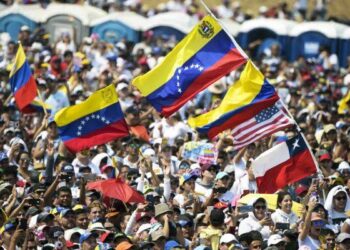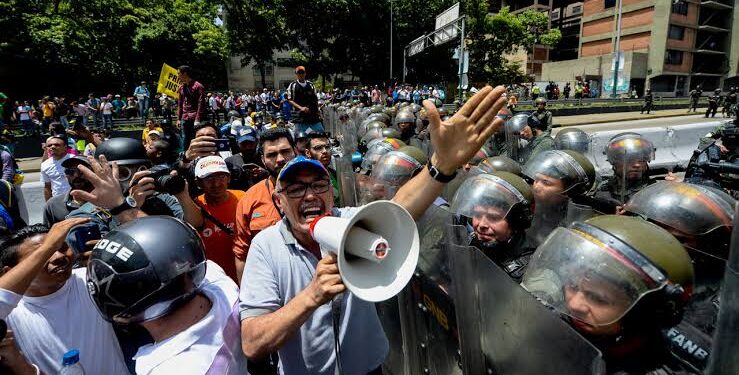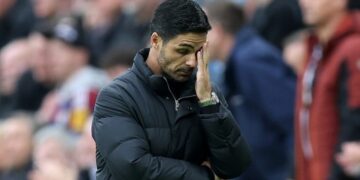Venezuelans are reacting strongly to the announcement by the electoral authority declaring President Nicolás Maduro the victor of the recent presidential election. Since the results were announced on Monday, protests have surged, intensifying on Tuesday as citizens voice their discontent with what many are calling a “fraudulent” election.
Election Results and Discrepancies
The official results proclaimed Maduro as the winner with 51 percent of the vote. However, independent exit polls, which recorded about 73 percent of the votes, suggested that opposition Edmundo González won by a significant margin. The discrepancy between official results and independent polls has led to calls from the international community for a thorough investigation and verification of the vote. The U.S. has presented the possibility of imposing new sanctions on individuals connected to the election unless greater transparency is demonstrated.

Domestic and International Reactions
Domestically, protests have erupted across Venezuela. Demonstrators have taken to the streets in cities including Valencia, Maracay, San Cristóbal, Maracaibo, and Barquisimeto. In Valencia, a protester spray-painted “fraud” on a road. Protesters have blocked roads, ignited fires, and clashed with police who responded with tear gas. Some reports indicate that security forces have used violence against marchers.
Andrea Garcia, a 27-year-old brokerage worker, expressed the frustration of many Venezuelans: “Edmundo is the president. We know he won the election. We want to live in the Venezuela that our parents had, where there wasn’t hunger in the streets.” Another protester asserted, “(Maduro) can’t govern with 80% of the country against him.”
Government Response
In response to the unrest, Defense Minister General Vladimir Padrino has labeled the protests as a “coup.” He stated, “There is a coup in progress so President Nicolás Maduro has stepped up to stop it again, along with the people who elected him president, all the institutions, the Bolivarian armed forces, and the democratic institutions. We will defeat the coup.” This characterization of the protests has raised concerns about the nature of Maduro’s government, with critics questioning whether it operates as a democracy or a dictatorship.
Impact on Migration
The ongoing dissatisfaction is expected to exacerbate Venezuela’s already high migration rate, with a third of its population having previously left the country. Many Venezuelans had earlier stated that their decision to emigrate would be influenced by the election’s outcome. Jorge Salcedo, a 23-year-old graduate, voiced the sentiment of many: “It feels like I no longer have anything to do here in Venezuela.”
Prospects for Change
The likelihood of Maduro’s government relinquishing power seems slim given its control over all state institutions, including the electoral authority and the military. Previous anti-government protests and sanctions have failed to remove him from office. As Venezuelans face a difficult future, the country remains in a state of uncertainty and unrest.

















